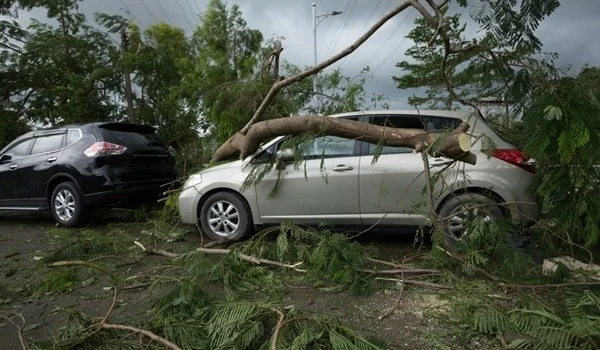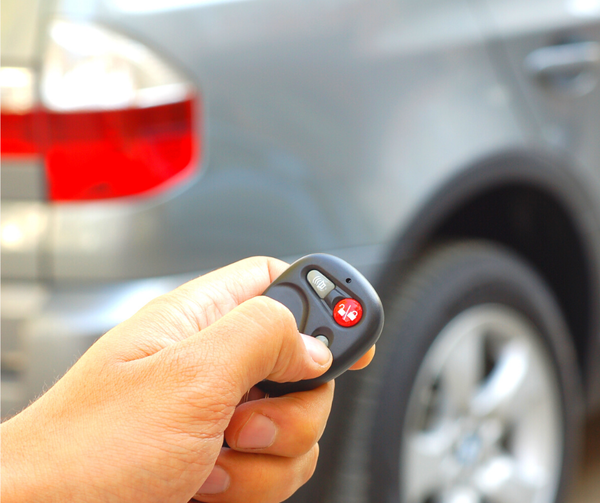
How to Prepare Your Car For a Hurricane
We pledge to provide straight talk from our NNINS Virginia insurance experts. Read the Northern Neck Insurance Integrity Promise.
It's essential to prepare your home for a hurricane. Our Hurricane Preparedness Guide (opens in a new window)can help prepare your family for a hurricane with trustworthy resources just for Virginia communities. But don't forget about your car. It's most likely your second most valuable asset. We'll help you cover the bases before the next big storm or hurricane hits Virginia.
How to Prepare Your Car for a Hurricane
Fill it, charge it, and have an emergency car kit
Hurricanes can knock out power for days, affecting the ability to purchase gas and supplies and charge your devices. It's a good idea to fill up your gas tank and even a spare can in case of fuel shortages. Also, charge your car's battery if it's electric and have some cash on hand in case gas pumps can not take digital payments for a period of time.
Have a good car emergency kit with:
- a first aid kit
- a blanket
- flares or triangle reflectors
- jumper cables
- a flashlight
- extra batteries
- an extra phone charging cable
- water and some protein bars or other healthy nonperishable snacks.
Keep your car's maintenance up-to-date
Hurricanes historically bring a lot of rain and wind. Having your car's maintenance current can help you avoid mechanical problems when help may be hard to find. When was the last time you changed your wiper blades? If they leave streaks or make noise, it's time for new ones. While you're at it, check the air pressure in your tires. There are a few other things you can do to get your car ready in case you need to evacuate.

Be smart about where you park your car before a hurricane
If possible, park your car in a garage. Remember that garage doors are the weakest link in most homes during severe weather with high winds. Back in for an easy exit if needed, and consider moving items on shelves that could fall and cause damage to your car.
If you don't have a garage or your parking area is low-lying and prone to flooding, move your car to higher ground. This is especially important for electric vehicles that may exposed to coastal storm surge to avoid submersion in standing water.
Park away from large trees and utility poles. You can also use padded car covers or blankets to guard against flying debris. Try to park next to a sturdy building if possible. Before you leave, double-check to ensure your windows and sunroof are completely closed, and take valuable items and important paperwork, like your car registration, with you.

Take pictures before bad weather in case of an insurance claim
We recommend snapping a few pictures of the outside and inside of your car before the storm hits. In the event of a claim, take photos again if there is any damage to your car before you clean it up. And check out our severe weather home and car claim FAQs!

Driving during and after a hurricane
Before attempting to drive, inspect your vehicle for any signs of water damage, debris, or structural issues. Check the undercarriage and wheel wells for debris that may have accumulated during the storm.
Driving in heavy rain can be dangerous. Driving in a hurricane is very dangerous! The most important thing to remember is to avoid driving through flooded roadways after a hurricane or heavy rainfall. Flooded roadways may not look deep, but taking the chance can be life-threatening and damaging to your vehicle. Avoid downed power lines. It's best to stay home as much as possible unless instructed by authorities to evacuate.
Special Considerations for Electric Vehicles (EVs)
EV owners should exercise additional caution, as saltwater exposure can pose fire risks. After potential exposure to saltwater, refrain from operating or charging the vehicle and consult with manufacturers or emergency services if battery damage is suspected.
Does car insurance cover hurricane damage?
It's good to know you're financially protected by your car insurance in case your car does suffer hurricane damage. Comprehensive car insurance covers wind, hail, falling objects, and damage if your car floods. It's optional coverage and separate from the collision and liability insurance required by Virginia. If you don’t have full coverage car insurance, check out our car insurance offerings and connect with a local agent today to see if more hurricane car insurance coverage is right for you.
Learn more about car insurance in Virginia
THE NORTHERN NECK INSURANCE INTEGRITY PROMISE — We pledge to provide straight talk and good counsel from our NNINS Virginia insurance experts through our blog. While we hope you find this to be a helpful source of information, it does not replace the guidance of a licensed insurance professional, nor does it modify the terms of your Northern Neck Insurance policy in any way. All insurance products are governed by the terms in the applicable insurance policy.






